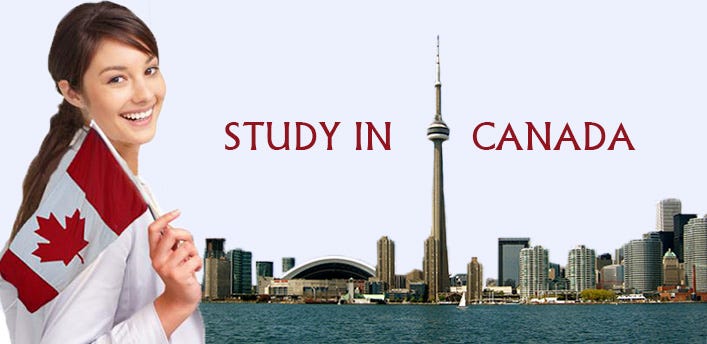The 10 Best Cities for International Students to Work and Study Comfortably
Studying abroad is thrilling—but for many international students, the real challenge isn’t just picking a university; it’s choosing a city where you can both study and work comfortably, feel safe, live affordably, and build real career skills. That’s why focusing on the best cities for international students to work and study comfortably matters. Below, we explore 10 excellent destinations, the key factors that make a city student-friendly, and how to use this list for your decision-making.
What Makes a City One of the “Best Cities for International Students to Work and Study Comfortably”?
Before diving into the list, let’s clarify what we mean by “work and study comfortably.” According to the Quacquarelli Symonds (QS) Best Student Cities ranking, key indicators include: university reputation, student mix (including international students), employer activity (job opportunities), affordability, and desirability (safety, culture, environment). (qs.com)
Additionally, for “work comfortably”, you’d consider things like part-time work rights for students, local job market, cost of living, quality of life, and student support services. One article highlights that places like the Delft in the Netherlands rank especially high for “working abroad while studying”. (Preply)
So when we review each city, we’ll keep in mind:
- Strong academic institutions
- Student-friendly visa/part-time work rules
- Cost of living and affordability
- Quality of life (safety, culture, amenities)
- Post-study or part-time employment opportunities
- International student community / support
10 Top Cities for International Students to Work and Study Comfortably
Here are ten cities that, based on various global rankings and student-experience research, stand out as excellent choices. The list is not ranked strictly 1-10 but presents a strong selection you should consider.
1. Seoul, South Korea
Seoul has recently been ranked #1 in the QS Best Student Cities 2026 list. (qs.com)
What makes it shine:
- Excellent universities and strong employer activity (tech giants, K-companies)
- Modern infrastructure, high desirability and a vibrant student cosmopolitan scene
- For work: South Korea has growing startup and tech sectors, meaning part-time and internship options for students
- Cost of living: While not the cheapest globally, compared with many Western capitals it offers good value for student life
2. Tokyo, Japan

Tokyo comes in as a close second in global student-city rankings. (Jagranjosh.com)
Reasons to consider Tokyo:
- Massive global city with outstanding universities and research opportunities
- Employer-friendly environment; many international companies have Japanese bases
- You’ll experience high-quality urban life, cultural richness, and strong transport
- Challenge: high cost of living and language barrier (though many student programs are English-friendly)
3. London, United Kingdom
London is still among the top-tier destinations for international students. (BusinessBecause)
Why London works:
- A huge concentration of world-class universities
- Global employer activity—very strong job possibilities post‐graduation
- A vast international student community
- Downsides: cost of living and student visas/work-rights can be challenging
4. Munich, Germany
Munich stands out in Europe as a strong blend of work-study comfort. (Jagranjosh.com)
Highlights:
- Germany offers favourable policies for students (work-part time, post-study stays)
- Munich has strong industry (engineering, tech, manufacturing) meaning good job prospects
- Quality of life is high: safety, amenities, culture
- Cost of living is moderate compared to some capitals, though still higher than small towns
5. Melbourne, Australia
Melbourne takes a strong position for international students seeking work + study. (BusinessBecause)
Why:
- Highly rated for student mix, international culture
- Australia offers student visas with part-time work rights, and good pathways to post-study work
- Lifestyle is relaxed yet cosmopolitan
- Be mindful of higher tuition and living costs compared to some non-Anglo countries
6. Vienna, Austria
Vienna is often cited for its student-friendly environment and comfort. (Amberstudent)
What stands out:
- Excellent quality of life: safety, public transport, culture
- Moderate cost of living (for a major European city)
- Universities that welcome international students
- Job opportunities may not be as numerous as in mega-metropolises, but students often find part-time roles and internships
7. Montreal, Canada
Montreal is a bilingual, vibrant city which often appears on “best student city” lists. (Amberstudent)
Why you might pick Montreal:
- Lower cost of living for Canada, strong student scene
- Good post-study work possibilities in Canada for international students
- Rich culture, French/English mix, lively arts scene
- Weather and winter conditions may be tougher for some
8. Berlin, Germany
Berlin shows up in Europe-centric lists as ideal for work + study. (wearefreemovers)
Reasons:
- Relatively affordable (for a capital city), strong startup and tech ecosystem
- Very international: English widely spoken and many programs in English
- Good student support, vibrant life
- You’ll need to verify specific visa/work-right details depending on your home country
9. Toronto, Canada

Toronto offers major advantages for international students balancing study and employment.
- Large global city with strong job markets, especially in tech, finance, media
- Canada’s relatively clear post-study work paths make it attractive
- Cost of living is high compared to smaller cities, but offset by opportunities
10. Amsterdam, Netherlands
Amsterdam is often cited as one of Europe’s best student-friendly cities overall.
- English-friendly city, many universities with international programs
- Good quality of life, safety, culture
- The Netherlands has fairly strong work & study pathways for international students
- Living costs are moderate-to-high, so budgeting is key
Comparison Table: Key Factors in the Best Cities for International Students to Work & Study Comfortably
Here’s a simplified table highlighting how some of these cities compare across three major factors: affordability, work-opportunity for students, and student community / support.
| City | Relative Affordability* | Student Work–Study Opportunity | International Student Support & Community |
|---|---|---|---|
| Seoul | Moderate | High – strong employer activity | Very strong – top global student city |
| Tokyo | Lower-moderate | High – large job market | Strong – large international student presence |
| London | Lower (costly) | Very high – global career access | Very strong |
| Munich | Moderate-low | High – Germany’s industry advantage | Strong |
| Melbourne | Lower (Australia expensive) | High – student work rights | Very strong |
| Vienna | Moderate | Moderate – smaller scale than mega hubs | Strong |
| Montreal | Moderate | Moderate-High – Canada post-study | Strong |
| Berlin | Moderate | High – startup ecosystem | Very strong – very international |
| Toronto | Lower-moderate | Very high – Canadian job market | Very strong |
| Amsterdam | Lower-moderate | Moderate-High – Netherlands pathways | Strong |
*Affordability relative to other major global student cities.
Use this table to weigh what matters most to you: cost, job potential, or community. If you prioritise working while studying, the “Work–Study Opportunity” column matters more. If budget is your biggest concern, the “Affordability” column jumps out.
How to Choose the Right City for You
Choosing the right city isn’t just about rankings—it’s about your personal goals, finances, course, culture preferences and career interests. Here’s a checklist to guide you:
- Academic fit & university ranking – make sure the institution in your chosen city offers strong programs aligned with your major.
- Work rights & visa conditions – check how many hours you can work, what kind of post-study opportunities exist.
- Cost of living & accommodation – factor in rent, food, transport, social life in your budget.
- Language and culture – Do you need to know the local language? Are you comfortable in that cultural environment?
- Job market in your field – If you want to work while studying or after, pick a city with employers in your industry.
- International student support – housing help, orientation programs, student unions, networks.
- Lifestyle and wellbeing – safety, transport, clubs, green spaces, mental-health support all matter because your study experience is more than just lectures.
Realistic Tips for International Students to Work & Study Comfortably
Once you’ve picked your city, here are some tips to make your study + work experience smoother:
- Begin networking early – join student clubs, attend career fairs, connect with alumni.
- Understand your work-hour limits as a student-visa holder (they vary by country).
- Budget smartly: even a city labelled “moderate cost” still requires planning—rent, utilities, food, socialising add up.
- Use campus resources: many universities offer job-search support, internships, part-time job boards.
- Choose flexible jobs: student friendly roles (library, tutoring, campus admin) often fit around classes better.
- Balance is key: working is helpful, but over-work can harm your grades—remember your primary goal is study.
- Look into post-study work visas early if you plan to live/ work after graduation—this may influence your choice of city and country.
- Make use of international-student communities for support and advice—they’ve been there and can help you adjust.
Why It Matters — and Why You Should Act Now
Studying abroad is a major investment of time, money and effort. Choosing the best city for your work + study comfort means you’re not just chasing a degree—you’re building a life, a career, and potentially a global future.
- A well-chosen city amplifies your value: better job prospects, networking, cultural exposure.
- It affects your cost: living where you struggle financially will hurt your study experience and mental-health.
- It frames your future: if you can gain work experience while studying, you’ll leave with more than just a qualification—you’ll have a resume, contacts, maybe even a job.
- Your student years are limited—making them count in a city conducive to work + study gives you advantage.
So if you’re considering studying abroad, don’t only pick the “top university”—pick the city that aligns with your goals for study, work, finances and life. Choosing one of the best cities for international students to work and study comfortably isn’t just smart—it’s strategic.
Conclusion
Finding the right place to study abroad involves more than looking at global rankings. It means understanding your priorities: Do you want strong part-time work opportunities? Are you on a tight budget? Do you value vibrant international communities? With the list above of ten excellent cities, we’ve covered destinations where students can both study and work comfortably—from Seoul and Tokyo to Munich and Montreal.
Here are your next steps:
- Pick 2-3 cities from this list that fit your budget, field of interest, language comfort and career goals.
- Research the universities in those cities and their student-work policies.
- Visit university and city websites to check part-time job markets, student services, cost of living.
- Reach out (via social media or university forums) to current or former international students in those cities for real-world feedback.
Make your choice not just about the degree—but about your experience, your growth, your future. When you study in a city where you can live, work, learn and grow comfortably—you set yourself up to thrive, not just survive.
Here’s to finding the city that becomes your home away from home—and your launchpad into the world.








1 comment
5s0evk